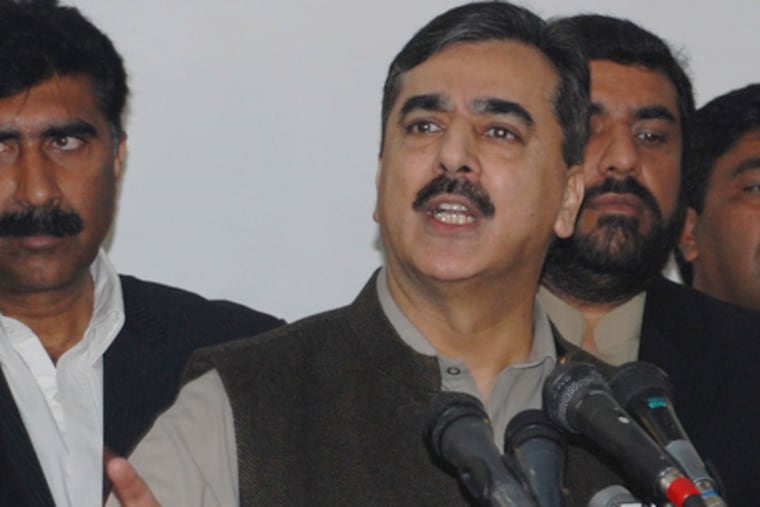Pakistan says second Mumbai suspect is in custody
An Islamic charity is declared a terrorist group subject to U.N. sanctions. It is linked to Lashkar.

ISLAMABAD, Pakistan - Pakistani officials announced the arrest of a second reputed key player behind the assault on Mumbai and investigated an Islamic charity for possible links to the attackers, as the U.N. Security Council declared the charity a terrorist organization.
At the prompting of India and the United States, the Security Council late yesterday declared Jamaat-ud-Dawa, which runs schools and medical clinics in Pakistan, a terrorist group subject to U.N. sanctions.
Washington says the charity is a front for the banned Pakistani group Lashkar-e-Taiba, which India blames for last month's assault that killed 171 people in its commercial capital. New Delhi has insisted on concrete evidence that Pakistan is quelling such groups.
A crackdown on Jamaat-ud-Dawa would underpin the promise by Pakistan's government to pursue the Mumbai conspirators. But Pakistani officials say India has not shared evidence from its investigation of the assault, underlining the mistrust between the nuclear-armed neighbors that is hampering U.S. efforts to avert a deeper crisis.
The Security Council yesterday also designated four suspected plotters of the Mumbai assault as terrorists subject to sanctions, including Zaki-ur-Rehman Lakhvi, Lashkar's operations chief. The others are Muhammad Saeed, Lashkar's leader; Haji Muhammad Ashraf, its chief of finance; and Mahmoud Mohammad Ahmed Bahaziq, a financier with the group.
Prime Minister Yousuf Raza Gilani confirmed yesterday that Lakhvi was detained Sunday in Pakistan's portion of Kashmir. That predominantly Muslim region in the Himalayas is claimed by both Pakistan and India and has been the focus of two of their three wars since 1947.
Gilani also said Pakistani authorities had detained Zarrar Shah, another alleged Lashkar leader. The prime minister said Pakistani authorities had staged raids on extremists based on information released by Indian authorities through the media.
Indian news reports, citing intelligence officials, identified Shah as Lashkar's communications chief and said he worked out ways for its leaders in Pakistan to stay in touch with the 10 gunmen during the siege in Mumbai.
The New York Times has reported that the attackers and their handlers used Internet phone services to make it harder for investigators to trace their calls.
"Pakistan is a responsible nation. We want to defuse this situation," Gilani said in Multan, a central Pakistani city that India says was the home town of two of the Mumbai attackers.
U.S. officials have told Pakistan it must go beyond arrests and prevent any repeat of the Mumbai assault, whose victims included six Americans. India released information Tuesday purporting to show that all 10 gunmen in Mumbai were from Pakistan.
The chairman of the U.S. Joint Chiefs of Staff yesterday praised Pakistan's steps so far, but added that it would take time to see how serious the crackdown was. "We measure by deeds," said Adm. Mike Mullen, who visited Pakistan and India last week.
Washington wants the South Asian rivals to resume a painstaking peace process so Pakistan can focus on fighting Taliban and al-Qaeda along the Afghan frontier.
Dismantling Lashkar will be politically dangerous for Pakistan's leaders because of the group's leading role in the dispute with India over Kashmir.